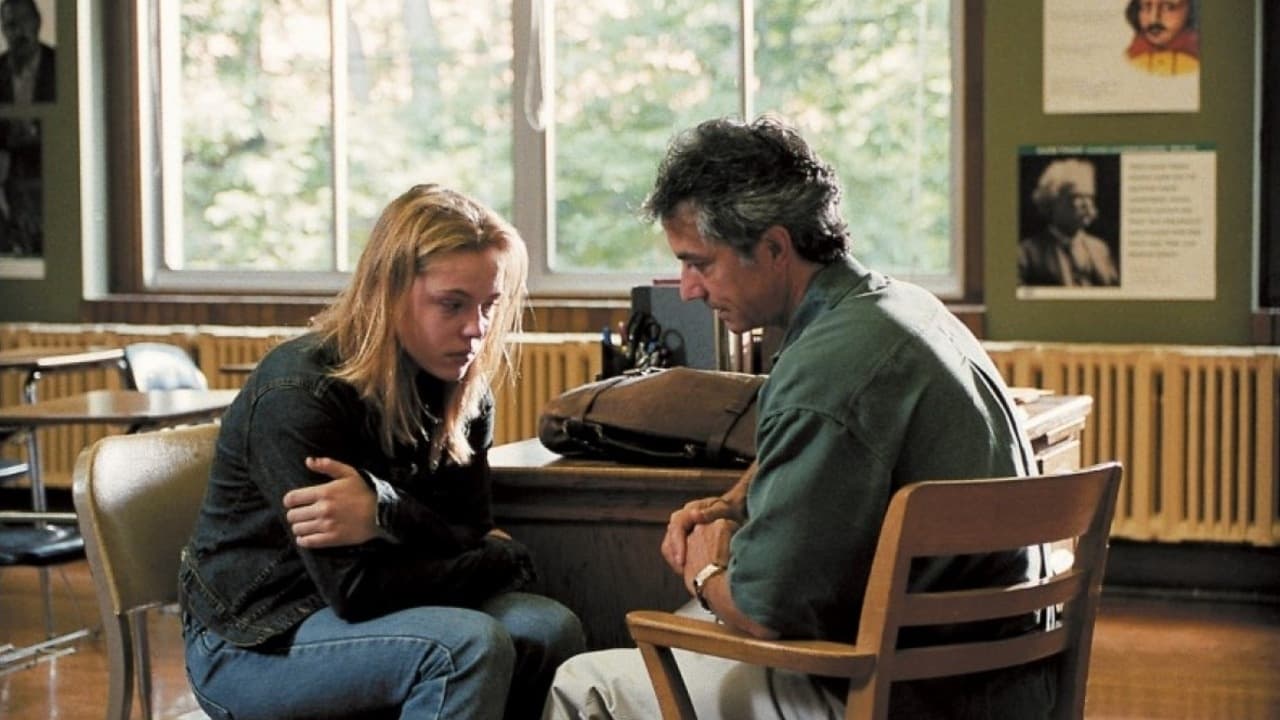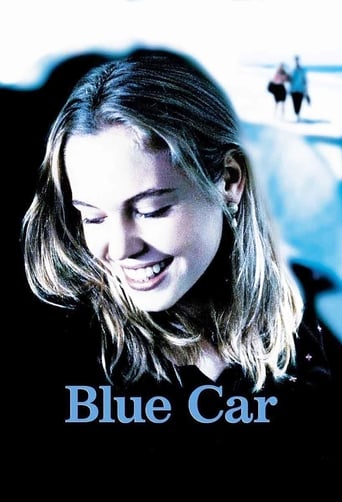

one of my absolute favorites!
... View MoreAm i the only one who thinks........Average?
... View MoreThe movie is made so realistic it has a lot of that WoW feeling at the right moments and never tooo over the top. the suspense is done so well and the emotion is felt. Very well put together with the music and all.
... View MoreThe movie is made so realistic it has a lot of that WoW feeling at the right moments and never tooo over the top. the suspense is done so well and the emotion is felt. Very well put together with the music and all.
... View More(Note to readers: there are definitely spoilers here!) This movie seems to have gotten high marks from viewers, but it didn't strike me as being praiseworthy. Some of my issues with the film: it was melodramatic yet dull, mostly pointless, and some of the situations are just ridiculous (such as Lily's death- I doubt they generally leave windows open- or even easily accessible- on the Psych Ward! I also doubt they leave suicidal children unsupervised).My main complaint is that the characters' behavior is often bizarre. Their motivations aren't very well fleshed-out, leaving the viewer (at least this viewer) wondering, "who the heck acts like that??". That combined with the very slow pace made me more irritated with the characters than sympathetic. Agnes Bruckner, however, is quite a talented and lovely actress and made Meg likable if nothing else.All in all I give this movie a four- it's just OK. Not good, not bad, but OK. I'd take John Hughes over Blue Car any day- at least his movies keep me awake!
... View MoreBlue Car is a dramatic story about a young teenager (Agnes Bruckner) that is over taken by the bad hand she was dealt in life. Trying to juggle school with a harsh family situation, she has become a product of her misfortunes making her that cliché isolated, depressed, quiet girl. With an absent father, disturbed mother, and a suicidal sister, she seems close to the breakdown point. However, a hopeful teacher (David Strathairn) comes a long and opens up a world to place her troubles upon... a world of poetry. The story follows her adventure of dealing with home problems while attempting to be prominent in a large poetry contest. Meg finds herself basking in a deep metaphorical state of catharsis as she seeks to find answers in a poem she writes about her father, titled Blue Car. Finally, a coming of age/ school film that strays from the normal school formula of a John Hughes's film. The film's dramatic unexpected twists and turns will entice you to be emotionally involved with the characters on a seemingly depressed, yet interesting level. Fantastic film making teams up with even better acting to portray a film that is not only intriguing but important. This films proves that a budget can carry a film so far, and the rest lie with the actors and artistic view of the film makers involved. Director Karen Moncrief carefully films this story, exploiting her points through different film techniques. The story almost reads as a poem itself... the story is slow but moved gently and rings true to all who can relate. Actors Agnes Bruckner, and David Strathairn are two forces not to be reckoned with. The characters portrayed by the actors truly carry this film... making it an emotional journey for all who watch. If you appreciate superb acting and film making that pays more attention to realism and truth, you will enjoy Blue Car.
... View MoreI find myself in an unusual situation. I've read through many of the comments about this movie, both the glowing and the dismal, and discover that to some extent I agree with all of them! The ones who praise the film accurately point out the high points, and the ones who trash the film accurately point out the weaknesses. However, I think both unabashed praise and utter demonification go too far. I'm going to assume if you're reading this, you've probably seen this movie, so beware of spoilers if you have not.No need to go through the plot as other users on here have done a good job of dishing it out. Here are the POSITIVE points.(1) Acting. Not a bad performance in this. Especially notable is Meg (we have a tendency to point out stellar youth performances because they often are few and far between due to lack of experience) who is able to speak a hundred words in each subtle expression and her English teacher. Straitharen is an underused force in the industry and he shows his true talents here.(2) Complex characters. Meg's teacher, her parents, her sister, and others all elicit different emotions from us. Sometimes we think they are supposed to be "good" characters; other times we think they're supposed to be "bad" characters. The film purposely leaves these terms out. Instead, we get an honest picture of how confusing the world can be, especially in the mind of a teenage girl.Straitharen's character is the most complex. Here we have a man who at first seems to sympathize with his obviously troubled student, latching on to the one interest which gets her away from all the problems: poetry, and he nurses this interest until it becomes something she is proud of. He comforts her like a father she needs when her already fractured family falls apart. For this, we like him. But the director suddenly turns this on its head, when the teacher begins a romantic/sexual relationship with the Meg which she does not assertively resist. "Is this okay?" he asks over and over as he goes further and further as if they are both twelve-year-olds kissing in a closet. Because she didn't ever say "no", are we supposed to sympathize with the teacher? Meg's answer is obviously in the negative, as she criticizes him publicly at the poetry reading in perhaps a more "honest" piece than her "Blue Car".Some users are asking what the teacher did wrong. Here it is in short: he should have known better. There are two possibilities. One is worse than the other but neither is good. Either the teacher had foul intentions concerning Meg from the beginning of the film and everything that followed was a rouse to get her into bed (this would be despicable without question), or the teacher honestly wanted to help Meg with her poetry and her troubles and during the course of his teaching and consoling, he developed sexual feelings toward her. Even if the latter is the case, the teacher is a acted very wrong. Why? I said it before: he should have known better. He knows all about this girl's troubles. He knows she has no one to turn to. He knows he is her only "ear" and she looks up to him. And what does he do? He shatters her only lifeline by making her life even more complex by adding sex into a relationship. Sex never simplifies things, especially between a teacher and student. He should not be asking her if it is "okay" as he sexually advances on her. The fact that she is in such a fragile state in that she is incapable of answering this is a resounding NO. He was the adult, he was the one with a more stable life, he selfishly let his own feelings (whether they were genuine or not) complicate a girl on the verge of falling apart herself.The above was assuming the second option was true. However, there is some evidence that the first, more deplorable motivation, is correct. First, there is the fact that he lies to her early on about his novel. When she asked, he could simply have told her that it wasn't a novel. Instead, perplexingly, he lies to her and pretends to read from it. At the time, we don't know this is a lie, but thinking back now, what were his reasons for doing so? Was he trying to cultivate Meg's trust and appeal? Was he trying to make himself what she wanted in her mind in order to cultivate a trusting relationship he could take advantage of later? Also, there's the interesting situation with his wife. She gets depressed when she sees Meg and the teacher offers to walk Meg home. Some of her lines make it seem that the teacher had been inappropriate with girls (students) before. Is this a habitual practice for him? To gain the trust of young girls and use it for his own selfish and deplorable motives? Finally, there is the issue of the deleted scene (which I haven't viewed but heard others talk about) in which after the sex scene the hotel manager tells Meg to get out and that her teacher had only purchased the room for an hour. This shows where the director was heading. The guy obviously had foul plans from the beginning and was too cold to even give her a place to stay for the night. I think the director cut this out because it unquestionably answered the question of the teacher's intentions. From the final cut of the film, though, there's not enough information to decide either way.I agree with the NEGATIVES that some other users have brought up (too much melodrama for only 90 minutes and not an uplifting moment in the entire film), but I don't think these detract enough to make this only mediocre.
... View MoreIt's always gratifying to see an independent film that tackles a thorny subject, knowing well that any of the major studios won't dare to sponsor any director who is original and has a different way to present the story. Such is the case with Karen Moncrieff, a courageous new voice who is a first time director working with her own material.The idea that school is a safe haven for the innocent, is the subject to this film. Meghan who comes from a recently broken home can't accept the idea of her parents living apart. When in school, she looks up to a male role model, perhaps trying to fill that void in her life. At the beginning of the film Ms. Moncrieff steers us into thinking one way, when in reality she wants to tell us there is another side to the apparently kind man who takes Meghan under his wing.As we have witnessed by the recent wave of revelations of sexual impropriety in the Catholic Church, there are people that tend to go to jobs where they can prey on unsuspecting young minds, only to satisfy their own sick desires. The film is an eye opener for any impressionable young person into believing these people that befriend them don't have ulterior motives.Agnes Bruckner, as young Meghan makes an excellent appearance in the movie. Equally effective is David Strathairn, as the teacher. This actor is always a welcome addition to any film. Margaret Colin, as the mother, gives a painful characterization as Diane, who must make ends meet and has her feet on the ground. Frances Fisher, is the jaded teacher's wife who has seen her husband get involved with other young girls before.Ms. Moncrieff is a talent to watch.
... View More